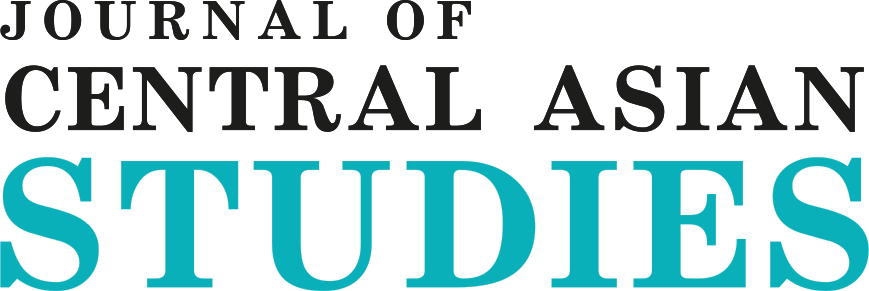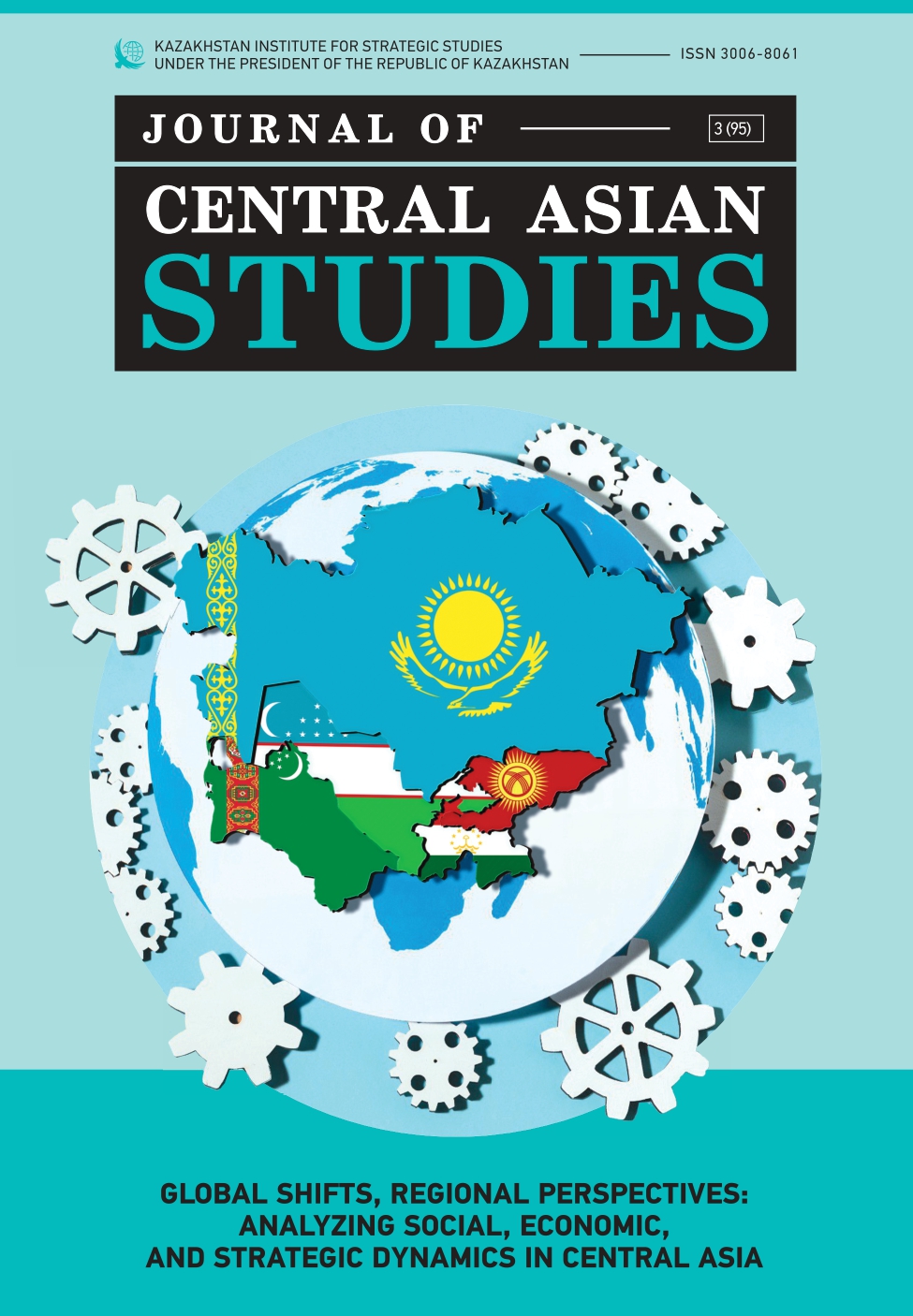Приводят ли глобальные инициативы по повышению продуктивности исследований к росту производительности труда: случай казахстанского университета мирового класса
DOI:
https://doi.org/10.52536/3006-807X.2024-3.02Ключевые слова:
инициативы по повышению академического совершенства, университет мирового класса, продуктивность исследований, библиометрия, Назарбаев УниверситетАннотация
Глобальные инициативы по достижению совершенства широко внедрялись в различных регионах для повышения качества и статуса высших учебных заведений. Создание университетов мирового класса было одним из наиболее частых подходов в рамках глобальных инициатив по достижению совершенства. Ярким примером успешного создания нового университета мирового класса является Назарбаев Университет в Казахстане, который, как ожидается, преобразует казахстанское общество путем подготовки высококвалифицированных кадров, стимулирования исследовательской и инновационной деятельности в стране и служения обществу в целом с точки зрения интеллектуального лидерства и инициатив глобального гражданства. Несмотря на большие перспективы, университет был тщательно изучен на предмет финансового бремени, связанного с его созданием и поддержанием. Однако внимание общественности не привело к достаточному количеству исследований, оценивающих различные воздействия университета на казахстанское общество и регион Центральной Азии в целом. В этом исследовании делается попытка заполнить пробел путем анализа библиометрических данных из Web of Science, чтобы оценить влияние создания Назарбаев Университета на показатели производительности исследований в Казахстане. В частности, прерванные временные ряды применяются к панели данных с 2000 по 2010 год, чтобы определить, повлияло ли создание университета мирового класса в стране на тенденции в исследовательской производительности, измеряемой с точки зрения количества публикаций, количества цитирований и размера научного сообщества (как косвенный показатель эффекта укрепления исследовательского потенциала). Исследование заполняет существующий пробел в предыдущих исследованиях глобальных инициатив академического превосходства и университетов мирового класса, предлагая количественные данные об эффектах инициатив на исследовательскую производительность.
Библиографические ссылки
Altbach, P. G., & Salmi, J. (Eds.). (2011). The Road to Academic Excellence: The Making of World-Class Research Universities. World Bank Publications.
Asubiaro, T., Onaolapo, S. & Mills, D. (2024).Regional disparities in Web of Science and Scopus journal coverage. Scientometrics, 129, 1469–1491. https://doi.org/10.1007/s11192-024-04948-x
Audulv, Å., Hall, E.O.C., Kneck, Å. et al. (2022). Qualitative longitudinal research in health research: a method study. BMC Med Res Methodol, 255 (2022). https://doi.org/10.1186/s12874-022-01732-4
Bernal, J. L., Cummins, S., & Gasparrini, A. (2017). Interrupted time series regression for the evaluation of public health interventions: a tutorial. International Journal of Epidemiology, 46(1), 348-355. https://doi.org/10.1093/ije/dyw098
Cao, Y., & Yang, R. (2023). China’s Academic Excellence Initiatives. International Higher Education, (115), 12–14. Retrieved from https://ejournals.bc.edu/index.php/ihe/article/view/16777
Caruana EJ, Roman M, Hernández-Sánchez J, Solli P. (2015). Longitudinal studies. J Thorac Dis., 7(11): E537-40. doi: 10.3978/j.issn.2072-1439.2015.10.63. PMID: 26716051; PMCID: PMC4669300.
Chou, C. P., & Chan, C. F. (2016). Trends in publication in the race for world-class university: The case of Taiwan. Higher Education Policy, 29, 431-449.
De La Poza, E., et al. (2021). Methodological approach of the Times Higher Education Impact Rankings. Emerald Insight. Retrieved from https://www.emerald.com
Feng, Z., Guo, X., & Jia, X. (2024). Global Comparison of Excellence Initiatives. In Education in China and the World: Achievements and Contemporary Issues (pp. 551-611). Singapore: Springer Nature Singapore.
Hazelkorn, E. (2013). Rankings and the reshaping of higher education: The battle for world-class excellence. Frontiers in Education. Retrieved from https://www.frontiersin.org
Katsu, S., & Saniyazova, A. (2018). A world-class experiment in Kazakhstan: Nazarbayev University. In Accelerated universities (pp. 68-85). Brill.
Kuzhabekova, A., Soltanbekova, A., & Almukhambetova, A. (2018). Educational flagships as brokers in international policy transfer: Learning from the experience of Kazakhstan. European Education, 50(4), 353-370.
Kuzhabekova, A., & Lee, J. (2018). International faculty contribution to local research capacity building: A view from publication data. Higher Education Policy, 31, 423-446.
Marginson, S. (2017). The world-class multiversity: Global commonalities and national characteristics. Frontiers of Education in China, 12, 233-260.
Mongeon, P., and Paul-Hus, A. (2016). The journal coverage of Web of Science and Scopus: a comparative analysis. Scientometrics 106, 213–228. doi: 10.1007/s11192-015-1765-5
Nazarbayev University (2023). NU enters THE World University Rankings: Scores top 30% of international research universities, September 28. Retrieved from https://ie.nu.edu.kz/news/
Rhee, B., & Yin, M. (2023). Academic Excellence Initiatives in the Republic of Korea: Brain Korea 21. In M. Yudkevich, Ph. Altbach, and J.Salmi (Eds). Academic Star Wars: Excellence Initiatives in Global Perspective. The MIT Press. Chapter 5. Retrived from https://direct.mit.edu/books/oa-edited-volume/5700/Academic-Star-WarsExcellence-Initiatives-in-Global
Salmi, J. (2011). The Road to Academic Excellence: The Making of World-Class Research Universities. Washington, DC: The World Bank.
Salmi, J. (2009). The Challenge of Establishing World-Class Universities. Washington, DC: The World Bank.
Schmoch, U., Fardoun, H. M., & Mashat, A. S. (2016). Establishing a World-Class University in Saudi Arabia: intended and unintended effects. Scientometrics, 109, 1191-1207.
Singh, V. K., Singh, P., Karmakar, M., Leta, J., & Mayr, P. (2021). The journal coverage of Web of Science, Scopus and Dimensions: A comparative analysis. Scientometrics, 126, 5113- 5142.
Song, J. (2018). Creating world-class Universities in China: Strategies and impacts at a renowned research university. Higher Education, 75, 729-742.
Tang, C. W. (2019). To be a first-class department in a first-class university: Perceived effects of a world-class initiative in two departments in a Taiwanese university. Journal of Higher Education Policy and Management, 41(3), 275-291.
The Vlast (2024). The myths about Nazarbayev University and budget spending. March 19, 2024. Retrived from https://vlast.kz/english/59380-the-myths-about-nazarbayev-university-and-budget-spending.html
Yang, X., & You, Y. (2018). How the world-class university project affects scientific productivity? Evidence from a survey of faculty members in China. Higher Education Policy, 31, 583-605.
Yonezava, A. (2023). Academic Excellence Initiatives in Japan: Can a series of government interventions make a difference? In M. Yudkevich, Ph. Altbach, and J.Salmi (Eds). Academic Star Wars: Excellence Initiatives in Global Perspective. The MIT Press. Chapter 3. Retrived from https://direct.mit.edu/books/oa-edited- volume/5700/Academic-Star-WarsExcellence-Initiatives-in-Global
Yudkevich, M., Altbach, Ph., Salmi, J. (2016). Academic Star Wars: Excellence Initiatives in Global Perspective. The MIT Press. Retrived from https://direct.mit.edu/books/oa-edited- volume/5700/Academic-Star-WarsExcellence-Initiatives-in-Global
Wagner, A. K., Soumerai, S. B., Zhang, F., & Ross-Degnan, D. (2002). Segmented regression analysis of interrupted time series studies in medication use research. Journal of Clinical Pharmacy and Therapeutics, 27(4), 299-309. https://doi.org/10.1046/j.1365-2710.2002.00430.x
Wang, Q., and Waltman, L. (2016). Large-scale analysis of the accuracy of the journal classification systems of Web of Science and Scopus. J. Informetr. 10, 347–364. doi: 10.1016/j.joi.2016.02.003
Загрузки
Опубликован
Выпуск
Раздел
Лицензия
Copyright (c) 2024 Кужабекова А., Карибжанов И.

Это произведение доступно по лицензии Creative Commons «Attribution» («Атрибуция») 4.0 Всемирная.











 Open content is licensed under the CC-BY
Open content is licensed under the CC-BY 